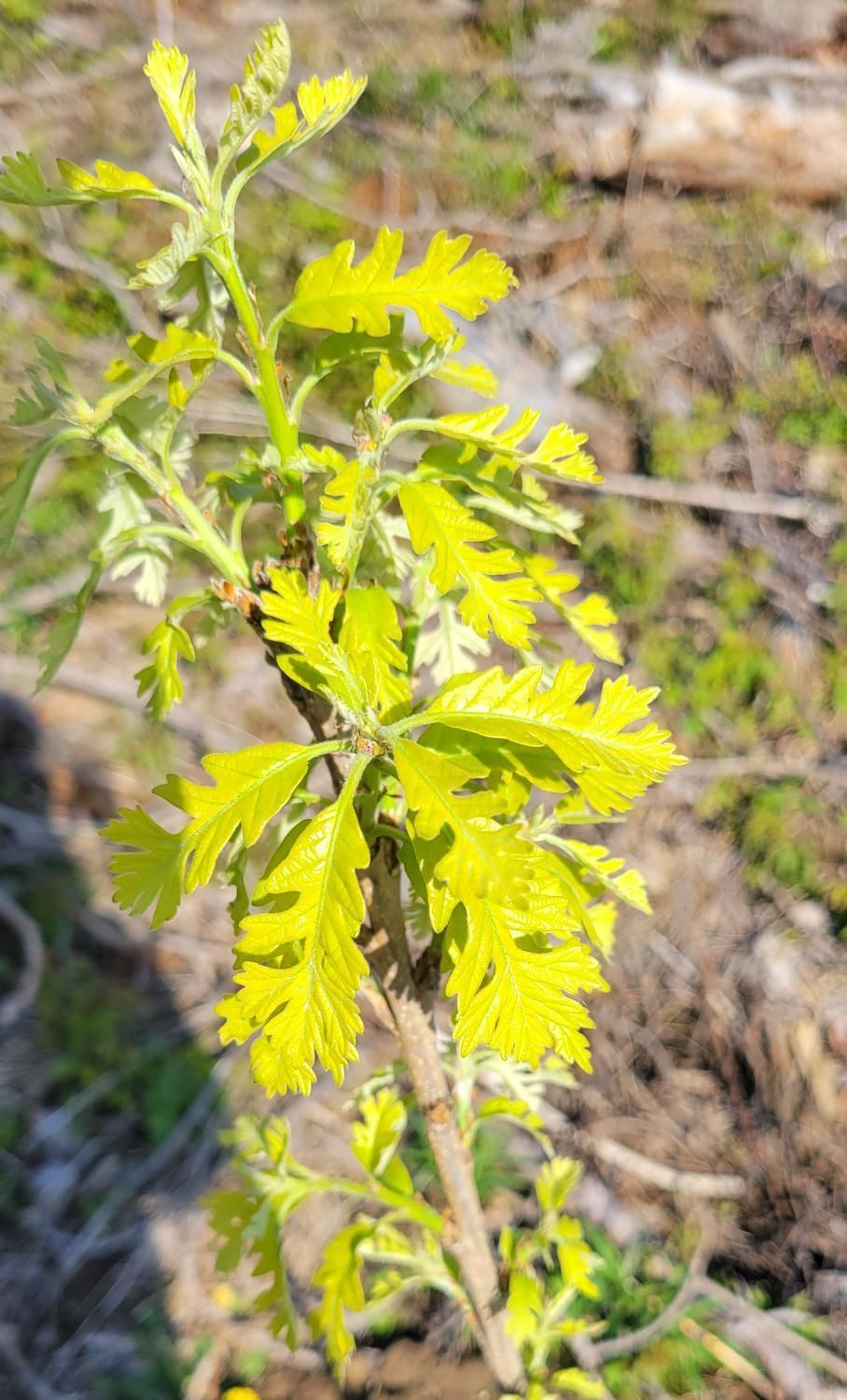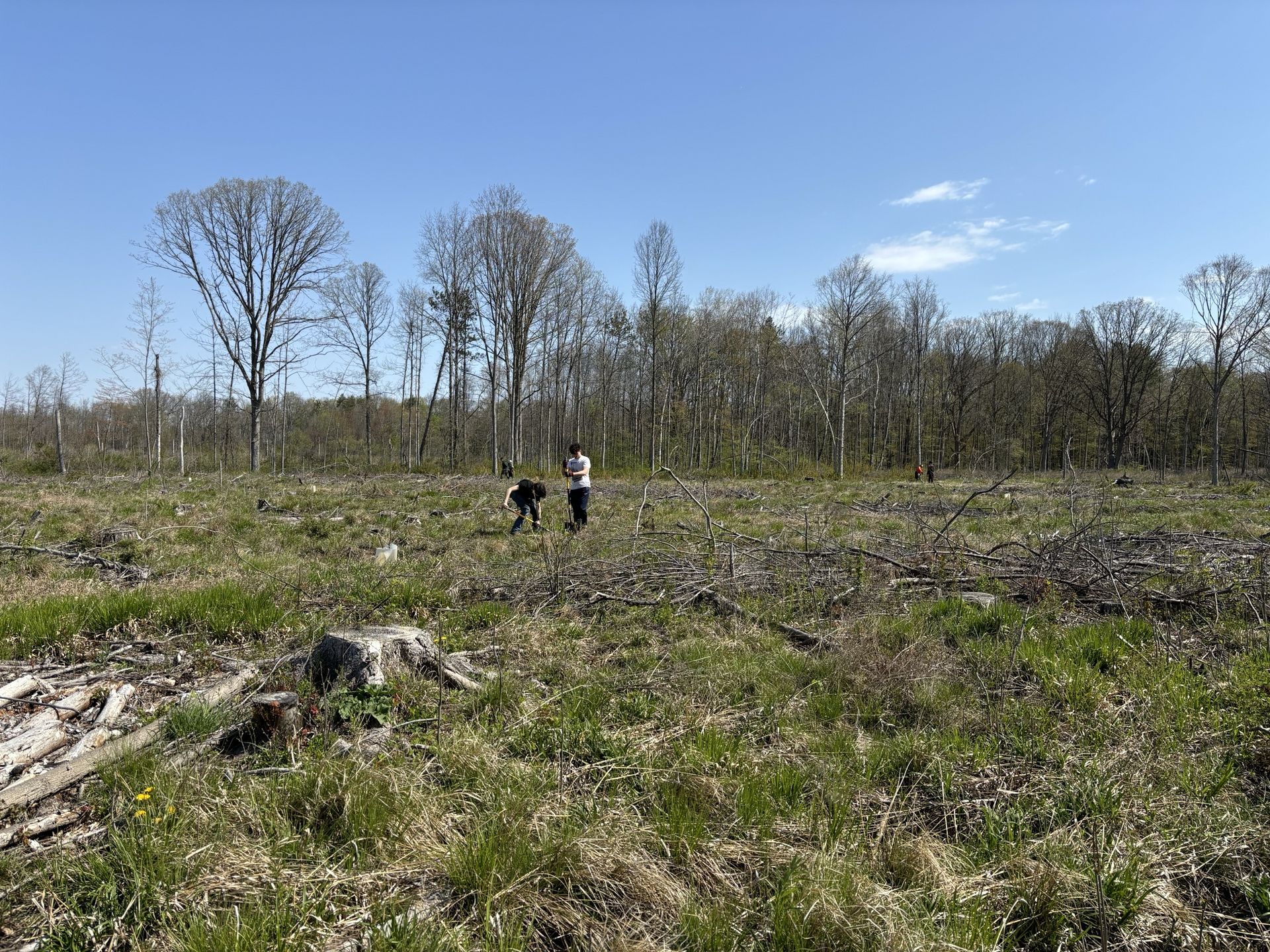Not only did volunteers plant trees in a clear-cut area to begin the regeneration process, but they also helped at a larger scale to maintain the forest structure in an otherwise sea of agriculture surrounding the almost 7,000 acres of Port Huron State Game Area following the Black River corridor. This land creates an important safe harbor for migratory birds to breed or stop through safely, on top of providing habitat for game species.
Additionally, the oak trees planted by volunteers play an important role as a critical food source for wildlife when other food may be scarce. These foods are especially important to wildlife because they are accessible in the fall and winter when other food sources are not as readily available. Many species of wildlife benefit from mast-producing trees, including deer and upland game birds like turkey. Trees are also a source of cover and nesting habitat for many species of small mammals and songbirds due to their branching foliage offering protection from predators.





